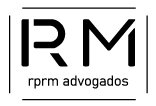Best Natural Resources Lawyers in Porto
Share your needs with us, get contacted by law firms.
Free. Takes 2 min.
List of the best lawyers in Porto, Portugal
About Natural Resources Law in Porto, Portugal
Natural resources law in Porto, Portugal, is a specialized field that governs the management, use, and protection of the region's natural assets. These resources include water, forests, minerals, coastal areas, and land reserves. Porto, being a coastal city with a rich environmental heritage, faces unique challenges in balancing economic development with the sustainable use of its resources. Laws in Porto reflect both national and European Union directives aimed at ensuring environmental sustainability, regulating commercial exploitation, and preserving natural habitats for future generations. The legal framework covers everything from water rights and forestry use to environmental permits and fishing regulations.
Why You May Need a Lawyer
There are several reasons why individuals or businesses may require the assistance of a natural resources lawyer in Porto. Common situations include:
- Acquiring permits for land development near protected sites or water bodies
- Addressing disputes about property boundaries or resource ownership
- Complying with regulations on fishing, forestry, or mining activities
- Challenging or appealing fines for environmental law violations
- Navigating the requirements for renewable energy projects
- Seeking compensation for environmental damage or pollution
- Developing or investing in real estate affected by zoning or conservation laws
- Advising on water rights, abstraction, and discharge regulations
A specialized lawyer ensures compliance with the law, helps avoid costly mistakes, and represents clients in administrative or judicial proceedings related to natural resource use.
Local Laws Overview
Porto is subject to both Portuguese national laws and European Union directives. Key legal areas related to natural resources in Porto include:
- Environmental Impact Assessments (EIAs) - Many development projects require environmental impact studies and compliance with licensing conditions.
- Water Law - The management of rivers, lakes, and coastal areas is strictly regulated. Water extraction, discharge, and pollution limits are monitored by government agencies.
- Forestry and Agriculture - There are laws governing land use changes, forest preservation, logging permits, and agricultural practices to protect biodiversity and prevent erosion.
- Mining and Resources Extraction - Extraction of minerals and other resources requires licensing and must comply with environmental standards to limit damage.
- Fisheries Regulation - Coastal and river fishing is governed by quotas, seasonal bans, and species protection laws.
- Protected Areas and Conservation - Some areas near Porto are part of protected parks or reserves, with restrictions on use, construction, and activities to safeguard ecosystems.
- Noise and Pollution Control - Industrial operations must adhere to pollution and noise limits set by municipal authorities and environmental agencies.
Compliance with these laws often requires technical documentation, permits, or ongoing reporting, making legal advice invaluable.
Frequently Asked Questions
What types of natural resources are regulated in Porto?
Water, forests, minerals, coastal resources, and land are the main categories regulated by local and national laws in Porto.
Do I need a permit to build near a river or the coast?
Yes, construction near water bodies or coastlines typically requires special permits and environmental assessments to ensure compliance with zoning and protection laws.
How are fishing activities regulated in Porto?
Fishing is regulated by licensing systems, catch limits, seasonal closures, and protected species rules overseen by government agencies.
Can I extract groundwater for my business or farm?
You usually need a permit from water management authorities. Limits and reporting requirements may apply to prevent over-extraction and protect water quality.
What should I do if I receive a fine for an environmental violation?
It is advisable to consult a lawyer immediately to review the infraction, your rights, and possible avenues for appeal or resolution.
Are there protected areas in or near Porto?
Yes, Porto is close to several protected sites where resource use and development are restricted to safeguard habitats and biodiversity.
What are my obligations if my property includes forested land?
You may need to follow specific management plans, obtain permits for logging, and adhere to fire prevention regulations and conservation measures.
How do environmental impact assessments work?
An EIA is an official review process required for certain projects that may affect the environment, including public consultations and oversight by regulatory bodies.
Who enforces natural resources laws in Porto?
Enforcement is shared between municipal authorities, national ministries (such as the Ministry of Environment), and specialized agencies, depending on the resource type.
How can I resolve disputes over natural resource use or boundaries?
Disputes can often be resolved through negotiation, mediation, or court action, with the help of a lawyer experienced in property and environmental law.
Additional Resources
If you are seeking further information or support on natural resources issues in Porto, the following organizations and agencies can be helpful:
- Agência Portuguesa do Ambiente (APA) - National environmental agency overseeing water, air, and land regulations
- Direção-Geral do Território (DGT) - National land and planning authority
- Instituto da Conservação da Natureza e das Florestas (ICNF) - Agency responsible for nature conservation and forestry
- Câmara Municipal do Porto - Porto City Council’s environmental and urban planning departments
- Associações Ambientalistas Locais - Local environmental advocacy organizations
Next Steps
If you believe your situation involves natural resources law in Porto, consider the following steps:
- Identify the specific issue or resource involved, such as water rights, land development, or fishing regulation.
- Gather any relevant documentation, such as property records, permits, or citations received.
- Consult authoritative online resources or contact local regulatory agencies for initial guidance.
- Reach out to a lawyer with expertise in natural resources law who understands both local and national regulations.
- Prepare for your consultation by listing questions, clarifying your objectives, and providing all necessary details to your legal advisor.
Legal issues involving natural resources can be complex and time sensitive, so early legal advice is often crucial for a favorable outcome.
Lawzana helps you find the best lawyers and law firms in Porto through a curated and pre-screened list of qualified legal professionals. Our platform offers rankings and detailed profiles of attorneys and law firms, allowing you to compare based on practice areas, including Natural Resources, experience, and client feedback.
Each profile includes a description of the firm's areas of practice, client reviews, team members and partners, year of establishment, spoken languages, office locations, contact information, social media presence, and any published articles or resources. Most firms on our platform speak English and are experienced in both local and international legal matters.
Get a quote from top-rated law firms in Porto, Portugal — quickly, securely, and without unnecessary hassle.
Disclaimer:
The information provided on this page is for general informational purposes only and does not constitute legal advice. While we strive to ensure the accuracy and relevance of the content, legal information may change over time, and interpretations of the law can vary. You should always consult with a qualified legal professional for advice specific to your situation.
We disclaim all liability for actions taken or not taken based on the content of this page. If you believe any information is incorrect or outdated, please contact us, and we will review and update it where appropriate.














